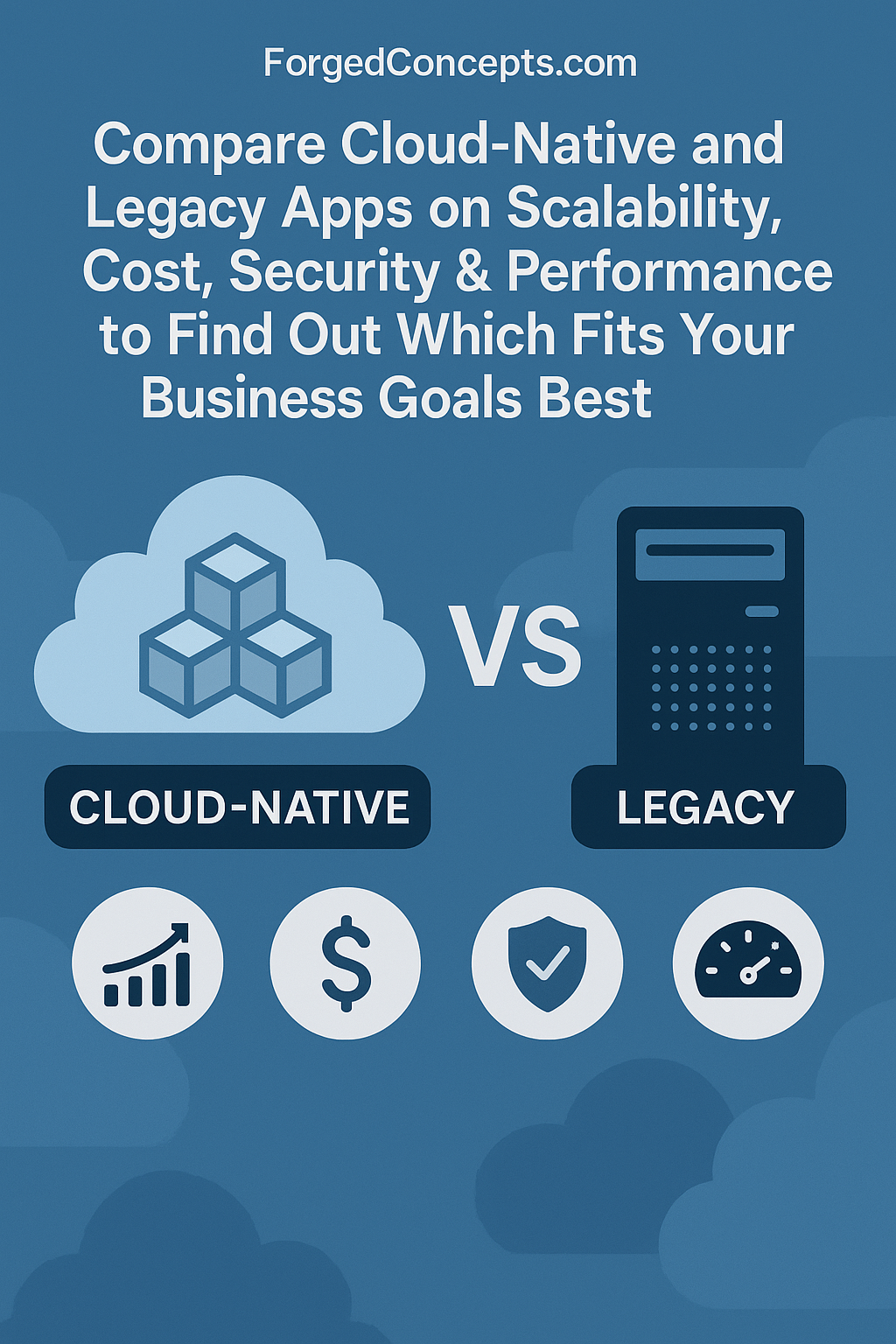
Legacy Systems vs Cloud-Native: Cost & Performance Compared
Nowadays, businesses face a critical decision: continue relying on legacy systems or transition to cloud-native applications. As enterprises weigh their options, it becomes essential to understand the differences in cost, performance, and overall modernization benefits between legacy vs cloud-native apps.
Let’s dive into how each system performs, the financial implications, and why modernization might be the best investment your company can make.
Understanding the Basics
Legacy systems are systems that are old and still in use even though newer ones are available. The reason? They keep up with the key tasks that businesses depend on. Built as in-house monolithic systems, they are usually costly to maintain and hard to scale.
That’s where Cloud Modernization Services come in. They help businesses move from these outdated systems to modern, cloud-based solutions. Cloud-native apps use microservices, containers, and continuous integration, making them faster, easier to manage, and more reliable. Moving to the cloud helps businesses work more efficiently and stay competitive.
Cost Comparison: Short-Term vs Long-Term Impact
Let’s check out the cost comparison of Legacy vs cloud native apps:
Cost Factor
Legacy Systems
Cloud-Native Apps
Upfront Costs
Lower (existing infrastructure already in place)
Moderate to High (initial investment in migration and cloud setup)
Maintenance Costs
High (ongoing updates, repairs, and vendor support)
Low (automated updates, managed by cloud provider)
Scalability Costs
Expensive (requires physical hardware upgrades)
Cost-efficient (auto-scaling based on usage)
Talent Costs
Rising (fewer professionals support legacy tech)
Lower (wider talent pool for modern frameworks)
Software Licensing Fees
High (often based on outdated pricing models)
Flexible (pay-as-you-go and subscription models)
Downtime/Disruption Costs
Higher risk of outages and longer recovery times
Minimal downtime with high availability features
Total Cost of Ownership (TCO)
Grows over time due to compounding inefficiencies
Decreases over time with operational efficiency and lower resource demands
Modernization Benefits: More Than Just Cost and Speed
More than just improving financial and technical metrics, moving to the cloud can bring many modernization benefits for businesses:
Enhanced Security
Major cloud providers have security features, compliance certificates, and privacy protections that are always being updated. Because of this, cloud-native applications are less prone to attacks than antiquated systems still in use nowadays.
Better experience for site users
With webpages loading quicker, user interfaces responding faster, and websites always working, end-users get a better experience with employees and clients.
Greater Collaboration
Thanks to cloud-native services, teams that work from different places can cooperate smoothly, use recent information, and make their work processes simpler with shared software tools.
Future-Proofing Your Business
Modern applications are better able to use new technologies such as AI, IoT, and blockchain. With such a foundation in place, your systems can grow with changes in the market instead of getting outdated.
When to Modernize?
Not every system needs immediate replacement. Businesses should assess:
The cost of maintaining the current system vs the projected cost of modernization.
Performance bottlenecks and whether they affect key business outcomes.
Integration challenges with other platforms.
Security vulnerabilities in outdated infrastructure.
If your organization faces repeated downtimes, escalating maintenance costs, or growth-limiting bottlenecks, it’s time to start planning your modernization journey.
Getting Started with Cloud Modernization
Moving to a cloud-native architecture isn’t always difficult. Working with suitable experts allows for an easier change and a better return on investment. Regardless of whether you opt for rehosting, re-platforming, or refactoring, following a detailed migration plan will help you avoid disruptions and utilize modernization tools effectively.
Business Agility & Innovation
The digital economy is so fast-moving that it relies on businesses being able to adjust and move fast. One reason cloud-native applications surpass legacy systems is that they help a business become more innovative and agile. Because they are built in a limited way, rigid legacy systems do not let organizations react quickly to shifts in markets or demand from customers. Making any update or changing anything in systems usually means extra development time and the possibility of system shutdowns.
On the other hand, cloud-native apps are meant to be adjusted and improved very rapidly. They better support the practice of CI/CD so that developers can add, improve, or fix features while the service is running with no interruption. Therefore, businesses can test new ideas, respond to customer feedback, and implement improvements more quickly.
Also, cloud-native architectures easily support popular new tools, APIs, and platforms, making digital transformation faster. The result? Faster service delivery, improved customer satisfaction, and a huge advantage over competitors.
Rapid innovation is challenging when your company is still using outdated systems.
Final Thoughts: Making the Right Choice
Many businesses no longer focus only on staying up-to-date when comparing legacy vs cloud-native apps. It’s focused on getting through and succeeding in today’s digital world. Even though your legacy systems may have worked for your business before, the many benefits of cloud-native solutions are difficult to ignore.
Because it offers benefits like cost savings, increased speed, better security, and increased agility, cloud-native is more than simply a passing buzzword. It will be the future.
Now is the time to examine your current systems and consider how upgrading them could help your business develop, innovate, and lead in the market.
Explore our Cloud Modernization Services and see how Forged Concepts can support you in making your applications scalable, secure, and performant going forward.
Forged Concepts
Explore expert cloud, AWS, and DevOps insights by forged Concepts, a trusted AWS MSP
View All Posts →